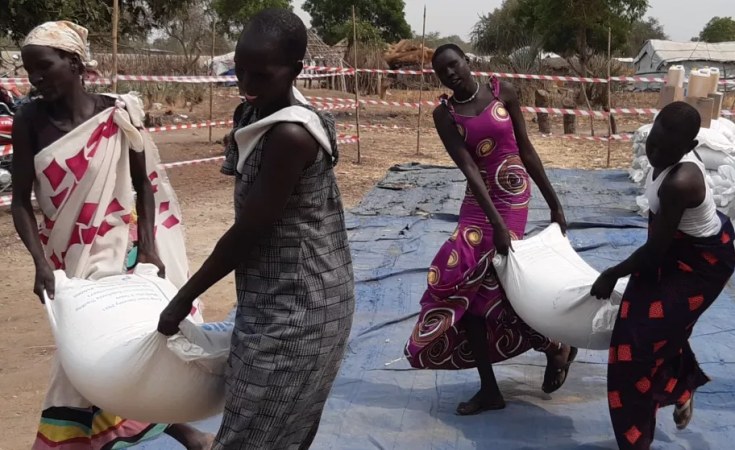The Government of South Sudan, in its first ever briefing to the UN Peacebuilding Commission, outlined its priorities on Tuesday, addressing a host of recommendations from civil society speakers and UN officials.
"Our priority in 2023 is to take a 'peace to people' approach with the Government's facilitation," Stephen Par Kuol, Minister of Peacebuilding of South Sudan, told the Commission, via video link.
Addressing the ambassadorial-level meeting on building peace in communities through local governance and community reconciliation in South Sudan, he said efforts included tackling such persistent challenges as intercommunal violence, a major legacy of decades of war.
'Build peace with us'
"This is something we cannot do alone," he said. "All we need is support from the regions and the international community to build peace in South Sudan with us."
He highlighted gains in judicial, security and constitutional processes since the parties signed the 2018 peace agreement. Meanwhile, the Government is "working hard to bring back together traditional leadership authorities" to ensure there are no armed groups in the country.
The Commission consulted on ways forward with Chapters I and V of the Revitalized Agreement on the Resolution of the Conflict in the Republic of South Sudan.
Suggestions included improving the resilience of local communities in the face of existing vulnerabilities - including endemic poverty, weak governance, gender-based and sexual violence and poor management of natural resources - which can exacerbate violence and intercommunal conflict.
List of asks
Civil society speakers, also briefing the Commission via video link, and presented recommendations to reinforce the path towards sustainable peace.
Offering several suggestions on how to improve the current fragile situation, youth representative Adeng Leek, a human rights advocate and programme manager with the Nonviolent Peace Force, pointed out that South Sudan is "no longer an infant" nation.
To overcome such major roadblocks to peace as shrinking civic space, spikes in sexual violence and a massive social disconnection between politicians and people, she said the Government must demonstratethe necessary political will to resolve concerns and foster accountability.
She said politicians must effectively respond to communities, and local authorities must dedicate themselves to deliver servicesneeded to counter such challenges as climate shocks and establish safe civic space.
If all these are left unconsidered, she warned, local governments will not have the required elements to advance peace.
Tools to 'make a difference'
Edmund Yakani, a civil society representative and Executive Director of Community Empowerment for Progress Organization (CEPO), said intercommunal violence has branched into alarming human rights violations, including slavery and trafficking.
Having mediated dozens of community peace agreements, he said the road ahead must strengthen the currently weak peace and reconciliation infrastructure, build space for civic dialogue, and ensure transparent peacebuilding funding. "Such tools can make a difference," he urged.
Fact-finding mission
Commission Chair Muhammad Abdul Muhith, Permanent Representative of Bangladesh, highlighted a new report on its December visit to South Sudan. Among other findings, he said concrete action is needed, including in holding elections and achieving the expected 35 per cent threshold of women's participation.
Other briefers, speaking via video link, agreed. Assistant Secretary-General for Peacebuilding Support Elizabeth Spehar, added that prioritizing trust-building efforts is essential for creating an enabling environment for peaceful exchanges.
Highlighting the dire funding situation, Ahmed Yusuf Hersi, Senior Political Advisor to the Special Envoy for Sudan and South Sudan of the Intergovernmental Authority on Development (IGAD), said the current ceasefire has allowed progress along several tracks, but challenges remain in making the transition to lasting peace.
Empowering women, youth
Sara Beysolow Nyanti, the UN Secretary-General's Deputy Special Representative and the UN Resident Coordinator in South Sudan, said the future hinges on empowering women and youth. Further, she said, there will be no sustainable peace until transitional justice is fully implemented.


